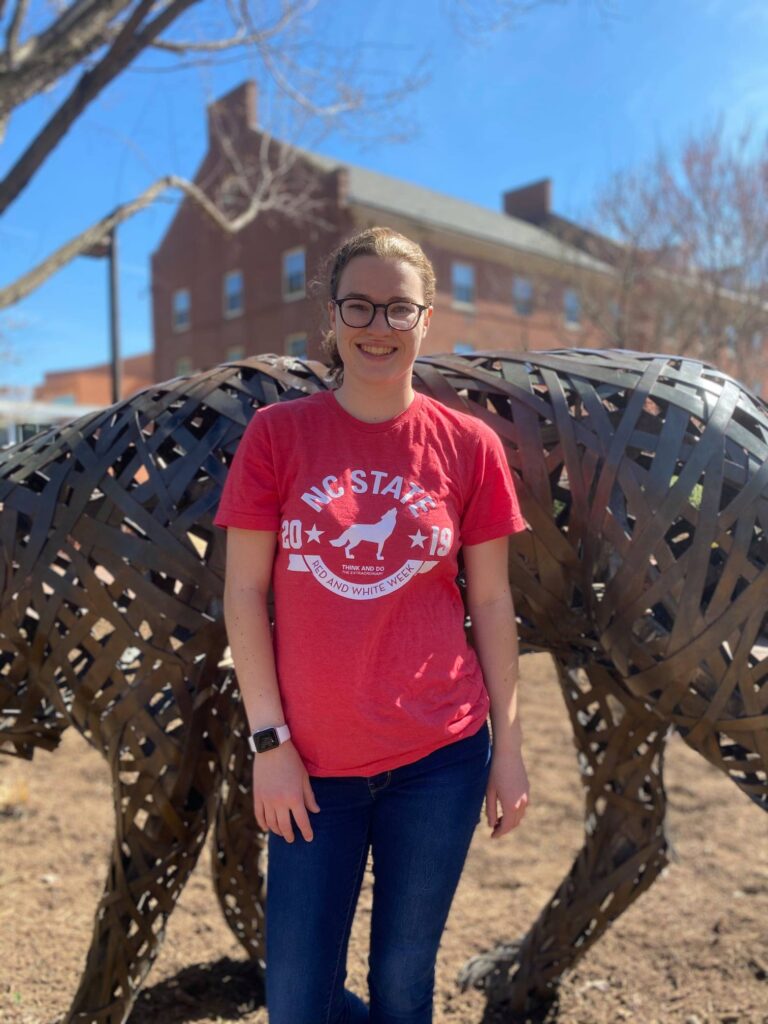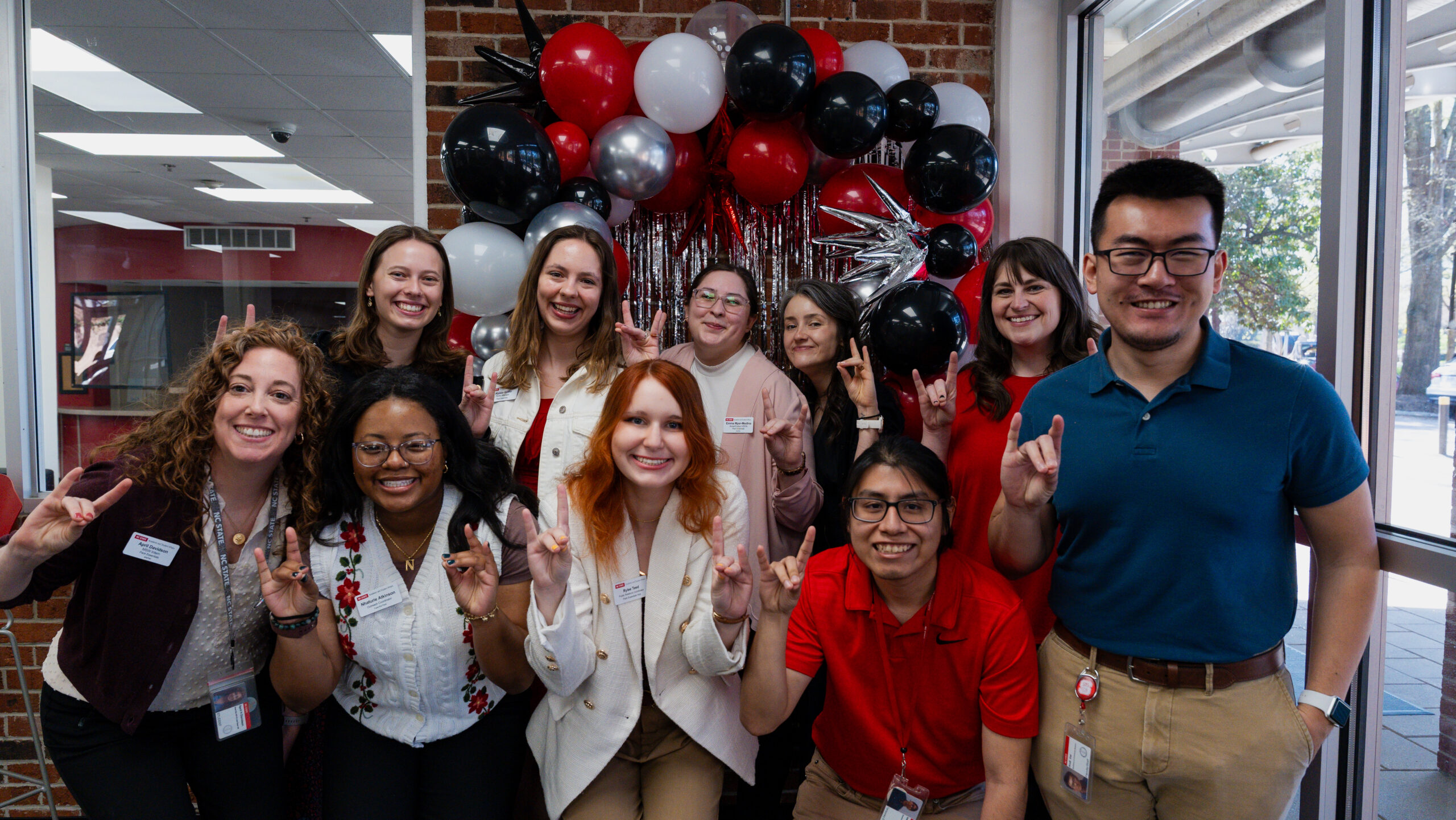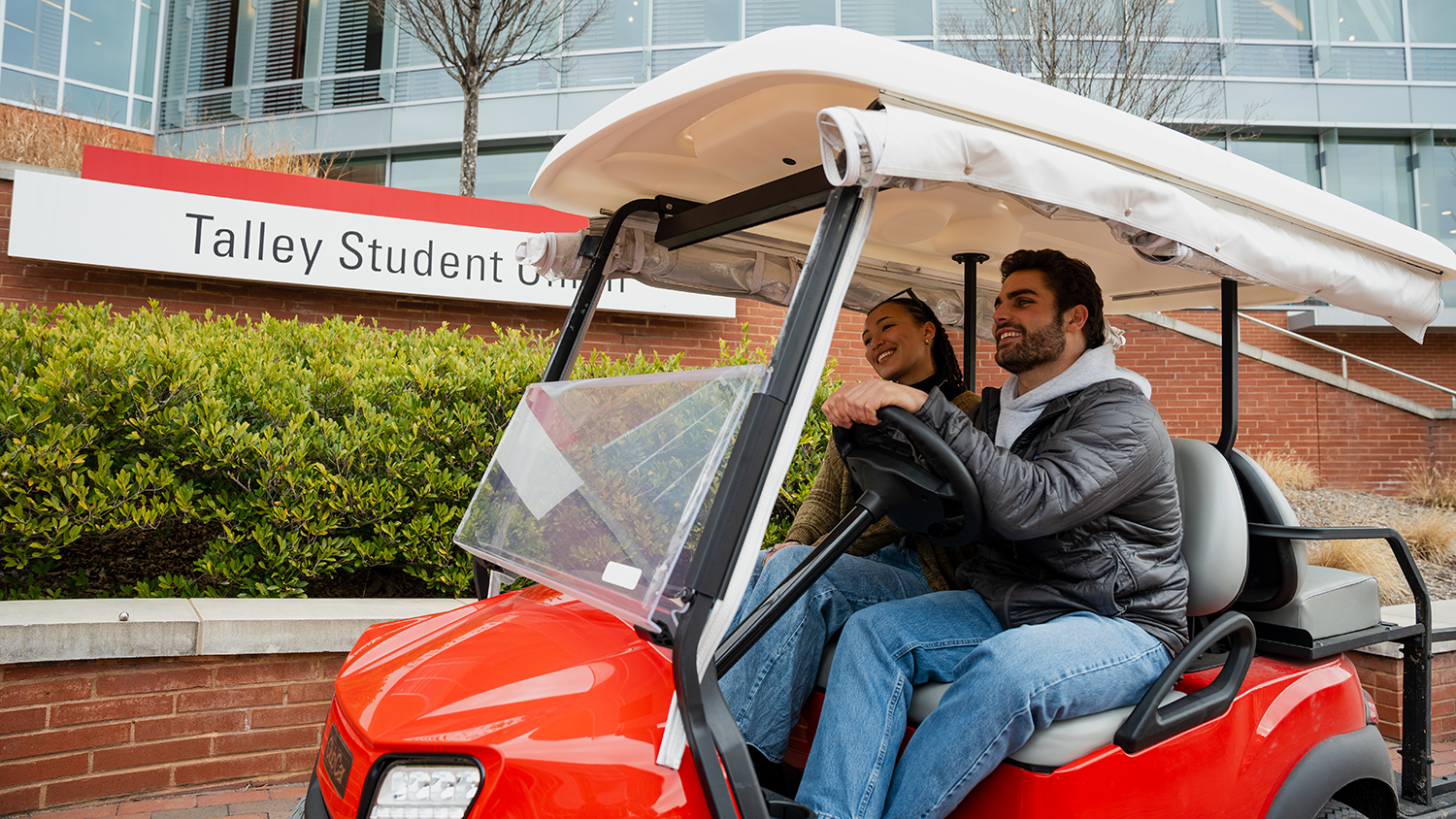As Part of the Pack, You’re Never Alone
For Suicide Prevention Awareness Month, NC State Counseling and Prevention Services is identifying some of the risk factors for suicide and pointing community members to resources that can help.

Each September, NC State Counseling and Prevention Services recognizes Suicide Prevention Awareness Month by hosting events and sharing resources for those who might be struggling with suicidal thoughts. This year, Counseling and Prevention Services is casting the spotlight on some of the risk factors.
Here are some examples of risk factors NC State’s students, faculty and staff are facing, along with resources that can help:
Food insecurity
Food insecurity is defined by the Oxford Dictionary as “the state of being without reliable access to a sufficient quantity of affordable, nutritious food.” A recent study of NC State students showed that 14 percent of students were food insecure in the past 30 days and 9.6 percent had experienced homelessness in the past year.
NC State never wants its students to miss a meal because they can’t afford to eat. If you are experiencing food insecurity, please visit Feed the Pack, the campus food pantry, for free, nutritious food and essentials.
Financial Insecurity
In the last year, many students lost their jobs both on campus and beyond due to the COVID-19 pandemic. While the situation has started to improve this fall with students returning to campus, many students still struggle with knowing where the next paycheck is coming from and that it will cover the costs of their bills.
If you find yourself in a similar situation, you may qualify for a grant from the Student Emergency Fund. If you need help finding a new job, the NC State Career Development Center has resources that can help you find a new job or internship to get you back on track. Can’t afford professional clothing for your job interviews? Don’t worry. The Career Development Center has a Wolfpack Styled Professional Clothing Closet, where you can pick out free, professional clothing.
Housing Insecurity
Knowing where you’re going to live and that you can afford it can be a significant stressor for college students, especially when it’s added on top of tuition and fees. Fortunately, the Pack Essentials Program can help students who are struggling with housing insecurity — or just need somewhere to stay during semester breaks — by providing temporary or emergency housing and other services.
Health Concerns
During the COVID-19 pandemic, health and safety has been a major concern for the NC State community. In addition to worries about contracting COVID-19, many also continue to deal with chronic illnesses or conditions.
NC State’s Student Health Center provides access to a wide variety of affordable and affirming health services and resources, including vaccinations, general care and dental care. It also provides HIV and STD testing. If you have a disability, the Disability Resource Office can help make special accommodations for you in your coursework, tests, residence hall and other aspects of your college experience.
Having a Voice and Being Heard
Along with the stressors of the COVID-19 pandemic, members of our community have also been affected by the many racial and political divides in our nation and in the world. To ensure the Wolfpack is being heard and that students have a space to talk and process major events, NC State offers support groups for social justice, advocacy and alcohol and other drug use. You may also speak with Student Ombuds to discuss your concerns about any aspect of your NC State experience.
Check out Counseling and Prevention Services’ Current Counseling Groups for more information about support groups.
Sense of Belonging
As we all acclimate and re-acclimate to in-person college experiences, it can be difficult to find your Wolfpack and feel like you belong. One of the best ways to meet people is by getting involved in Student Leadership and Engagement’s 600-plus clubs and organizations. You may also connect with students who have similar backgrounds or interests through Campus Community Centers and through Counseling and Prevention Services’ Drop-in Spaces.
Personal Advice from a Mental Health Ambassador

Lauren Bradley (social work ’23) knows firsthand how difficult college can be from a mental health standpoint. That’s why she chose to become a mental health ambassador for Counseling and Prevention Services.
“I wanted others to feel comfortable reaching out for help and knowing how to access resources,” Bradley said.
Bradley recommends using the following resources if you or someone you know is experiencing suicidal thoughts or other mental health issues:
- Reach out to the CARES program and anonymously submit a referral for a peer or yourself.
- Call the Counseling Center and talk to a counselor. If you or someone you know is experiencing a mental health emergency, dial (919) 515-2423 (select option 2 if it is outside of 8 a.m. to 5 p.m. business hours). You can also make an appointment to speak with a licensed counselor. Everything you say in any call or session is confidential.
- The Women’s Center provides resources and assistance to sexual assault survivors and can be reached through their Sexual Assault Helpline at (919) 515-4444.
Outside of NC State, Bradley recommends calling the National Suicide Prevention Lifeline at 1-800-273-TALK. You may also text HOME to the Crisis Text Line at 741-741.
“You are not alone,” Bradley said. “Whether you are an undergraduate student or a graduate student, there are people that you know who are struggling with their mental health. These resources exist because lots of students need to use them. College is an amazing privilege that also comes with a lot of hardships and life transitions.
“The Counseling Center holds group therapy where you can meet other students who are also struggling and can empathize with your situation,” Bradley continued. “Prevention Services also holds Drop-in Spaces every week. These are amazing spaces where you can socialize with other students with zero commitment to return. There are spaces that are specifically held for specific ethnic groups and spaces that are geared towards certain environments. All of the spaces are geared towards social connection between students to help people feel like they are not alone.”
Participate in a Candlelight Vigil
This Friday, September 10, Prevention Services and the National Alliance on Mental Illness on Campus are hosting NC State’s 11th Annual Suicide Prevention Awareness Candlelight Vigil in observance of World Suicide Prevention Day. The vigil, which is part of Prevention Services’ Suicide Awareness Month programming, is designed to increase awareness and foster community around suicide prevention. The event begins at 6:30 p.m. on Stafford Commons and will include therapy dogs and more information about mental illness resources.
Learn more about the event on the University Calendar.


